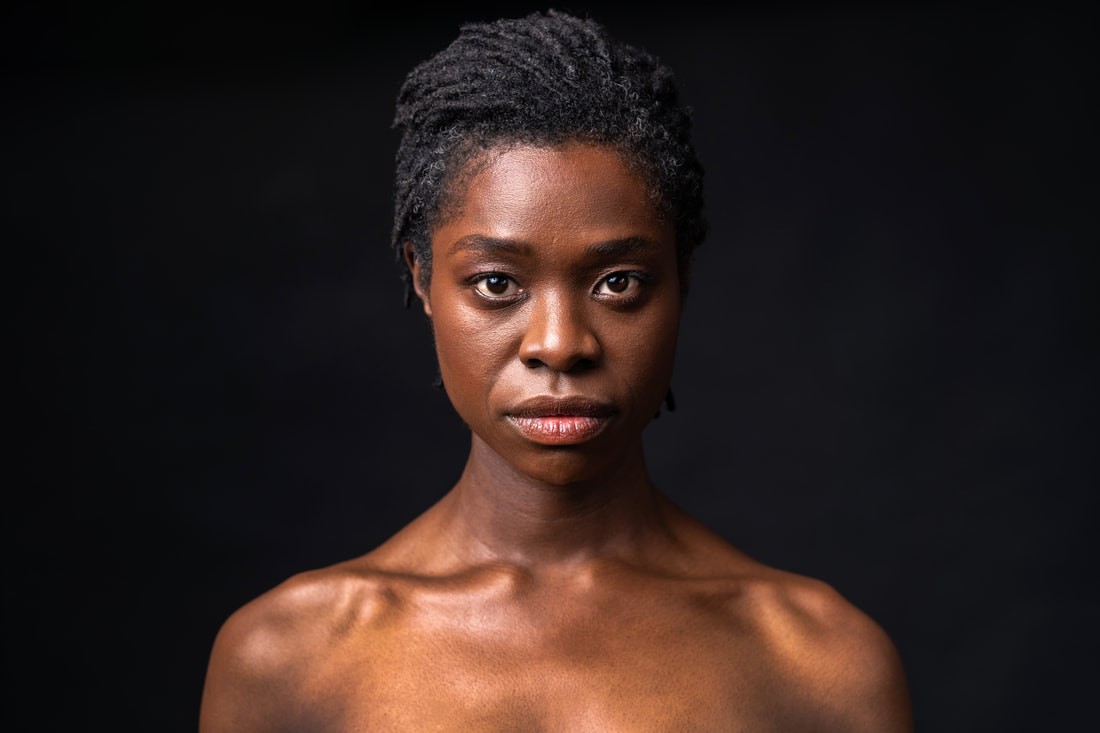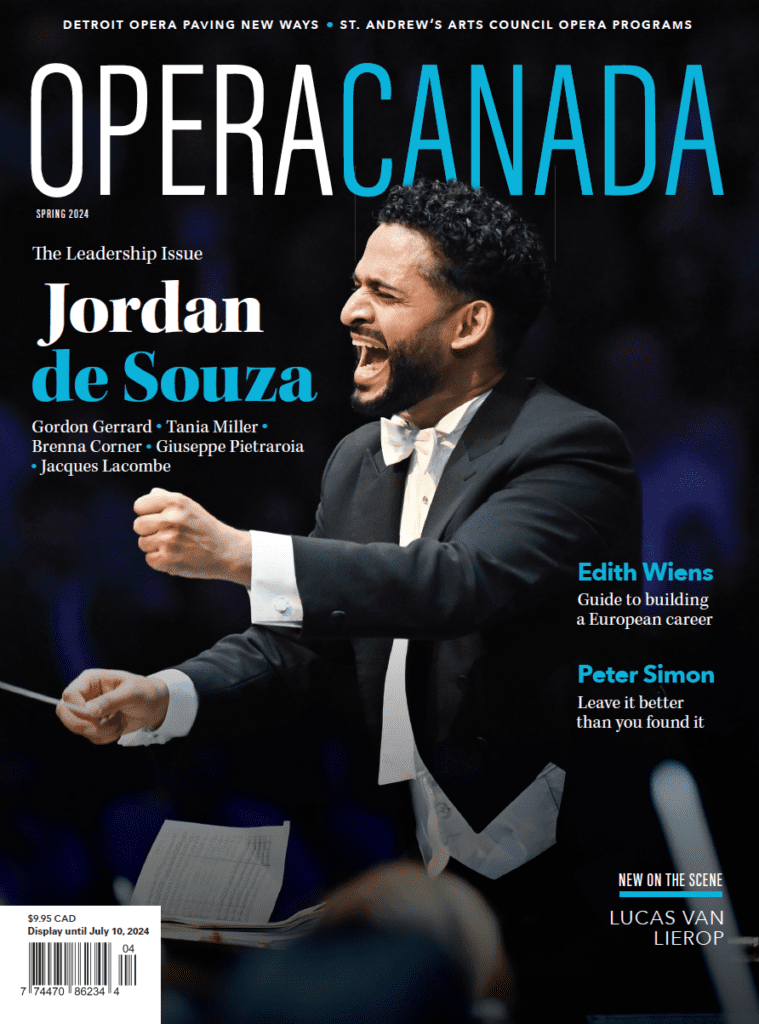The Artist of the Week is Canadian singer/artist/maker Neema Bickersteth, who is currently in Toronto rehearsing for the Canadian Opera Company‘s upcoming production of Aportia Chryptych: A Black Opera for Portia White, running June 14-16 (info and tickets here).
This versatile artist is known for her expressive performances throughout North America and Europe, particuallry in contemporary productions. Recent highlights include the title role in Scott Joplin‘s Treemonisha – A Musical Reimagining, produced by Volcano at the Luminato Festival (co-presented by TO Live, and associate produced by the Canadian Opera Company, Soulpepper Theatre and Moveable Beast); the lead role in The Ritual of Breath is the Rite to Resist with the Hopkins Center and Stanford Live, American and European tours with globally-acclaimed Spanish conductor and musician Jordi Savall; Life After for the Musical Stage and Canadian Stage, and global tours of Century Song with Volcano and her own collective, Moveable Beast.
This week are fortunate that Neema found a few spare minutes in between rehearsals to talk to us about where she finds inspiration, how she defines success, and how her young daughter gave her the best advice she has ever been given. Read on to find out more.
When was your first singing lesson (and with whom)?
My first singing lesson was when I was eight years old.
What/who inspired you to sing?
Nobody really inspired me to sing, music and singing was just a part of life at home. My parents both always sang. My Dad sang at church and my Mom was always humming and singing around the house.
Heels or flats?
Definitely flats, although heels look amazing! I like to feel grounded as I am a person who is always in the cloud.
Favourite city that you’ve worked in?
Ghent, Belgium. Because it was beautiful green ,and had a river flowing through the city. The theatre had a person whose job it was to care for the performers coming through, and so anything we needed he would help with, which included babysitting my baby, and also a giant spread of amazing food in between our tech and performance. I just loved that there was a person whose job it was to care.
View this post on Instagram
Who is a singer you admired from the past?
Obviously a singer who is on my mind right how is Portia White. And working Aportia Chryptych brings the inspiration just through my entire body. The role that I’m performing is technically called “Portia Body”, and she is definitely an inspiration
Tent or hotel?
Hotel. But if it is clamping then I could do a tent.
What are you afraid of?
Not being enough for whoever I am connecting with. That need or want to be with and for whoever I am with, whether that be an audience, family member, or friend. That’s my greatest fear.
What’s your ancestry?
My family is from Sierra Leone, our tribe is Krio people. And the ancestry of the Krio people is complicated because we came from Black people who decided to go back to Africa after being freed from slavery, or escaping the trauma and trials and tribulations of being Black in other parts of the world. So from about 1792 onward, there were boats of people that made their way to Freetown, Sierra Leone,, and eventual the Krio tribe was created. My ancestry beyond that becomes unknown.
Are there more musicians in your family? If yes, who and what do they play/sing?
My Dad always used to sing in the choirs at church, my mom also sang in the choirs, my brother is self-taught musician on piano, guitar, and bass-guitar. My nephew is percussionist, he plays drum in the marching band and drum kit. And finally my daughter is learning how to play piano, and in such a short time has surpassed my ability on the piano, with such ease!
Where did you go to school?
I went to UBC.
What’s the downside of being an opera artist?
I can consider myself to be a performer, singer and artists, and so opera artist is just one part of how I define myself. So the downside is that that label sometimes takes over everything else. Sometimes people seem most interested or excited that I sing in operas and that just feels like just one part of me.
What’s the best thing about being an opera artist?
I have learned and leaned into being heard. A huge craving of many people. And when you have a voice that is trained in classical voice and opera, people hear you!
Are you happiest in the country or in the city?
I like the country with the city close by.
What is the best advice you have ever been given?
When my daughter was around 3 years old, she would often say: “You be you”.
What is the first thing you would do if you won the lottery?
I would take my Mom, daughter, brother, and nephew on a a trip to Sierra Leone, to see where we are from, and my Mother could teach us all the history, and about our family.
Do you approach singing and/or upcoming projects differently today than you did at the beginning of your career?
Yes, I definitely approach things differently now. For me It is important that I see myself in the project or role that I am a part of. For example, that means acknowledging process and taking time with people and ideas. So rather than do 3 or 4 projects all at the same time, I separate them a bit and give space for process so that by the time we need to put things together, I can really see myself in it. I can bring myself and my strengths.
What does it mean to be brave with music?
With singing I think the act of singing is a very courageous thing. Our voices, all of our voices, if we are singers or not, our speaking voices and the words we choose, how we communicate with the world must come from our hearts and that is a very vulnerable thing and we must be very courageous to do it.
What does success look like to you?
Success for me is getting to a place where I believed in my self, where I bring myself and what I have to give and it is received and accepted and enjoyed. Perhaps it would be fulfilling for both myself and for whomever I was sharing the gifts with. That feel whole, joyful, complete, that feels like love. And to me that is success.
LEARN MORE ABOUT NEEMA BICKERSTETH
VISIT HER WEBSITE
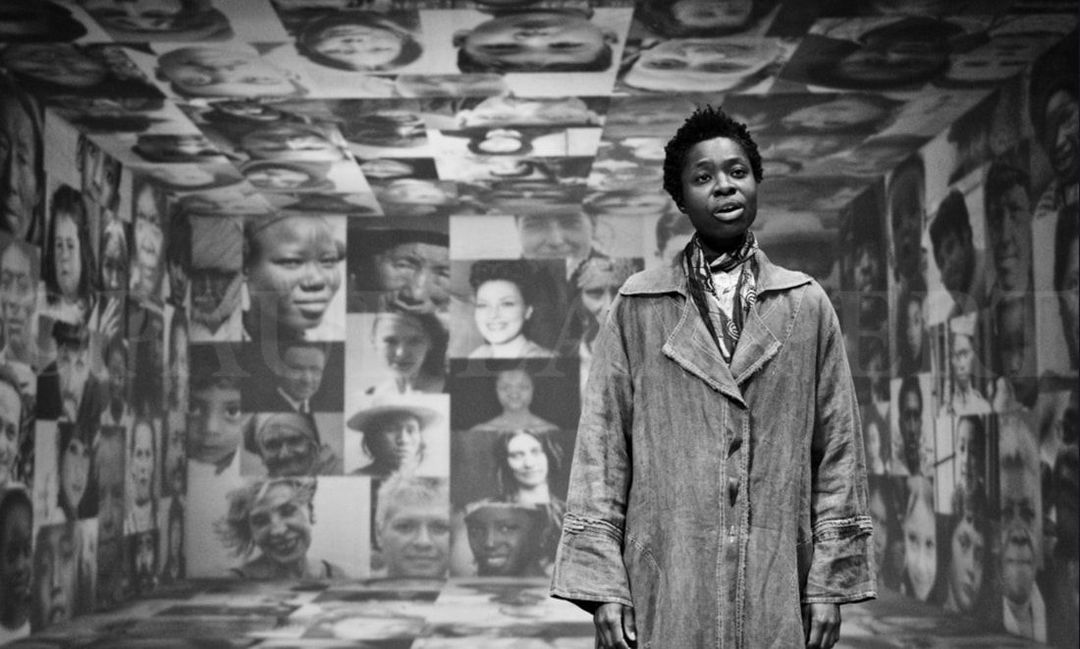
©Paul Lampert
Century Song
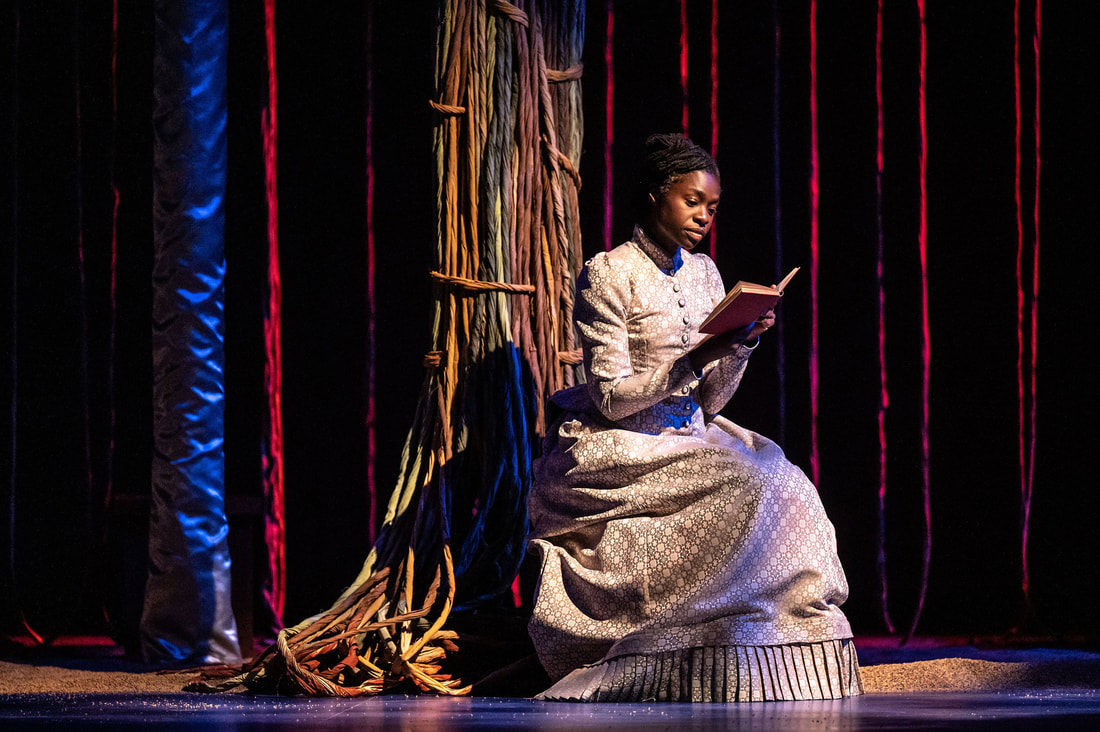
© Dahlia Katz
Treemonisha
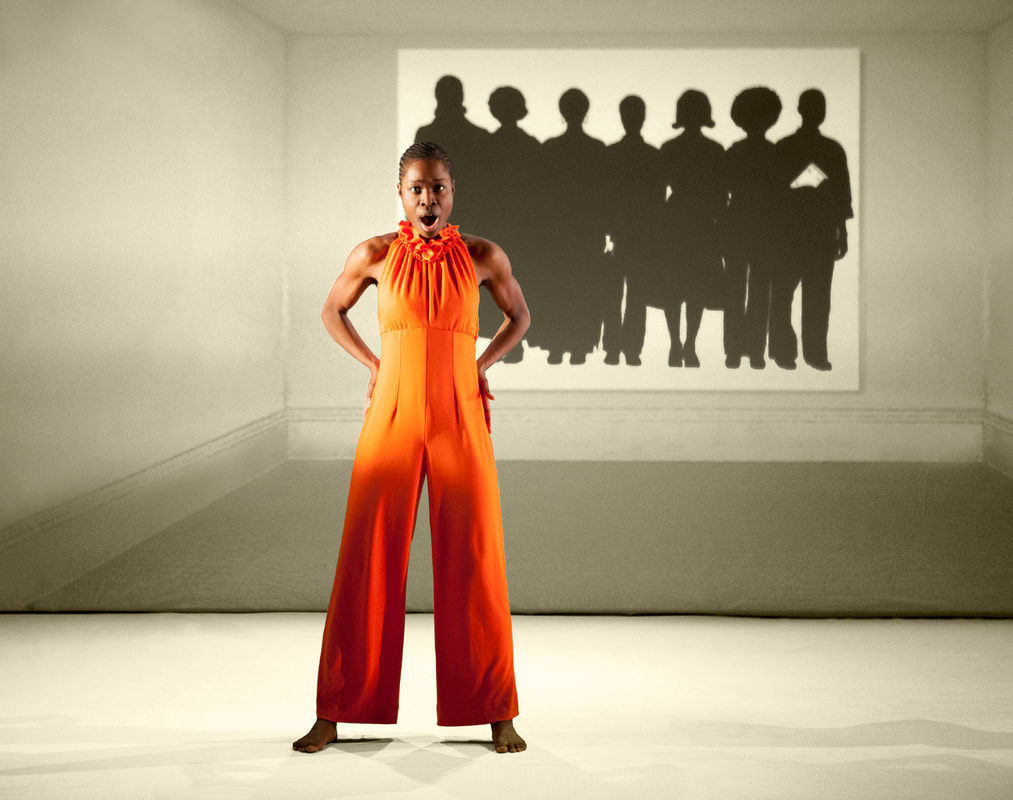
©John Lauener
Volcano’s Century Song
Aportia Chryptych: A Black Opera for Portia White
Canadian Opera Company
June 14 -16
COMPOSER: Sean Mayes with HAUI
DIRECTOR AND LIBRETTIST: HAUI
ASSISTANT DIRECTOR: Sheree Spencer
DRAMATURG: Neema Bickersteth
CONDUCTOR: Sean Mayes
SET AND PROJECTION DESIGN: Laura Warren
LIGHTING DESIGN: Bonnie Beecher
COSTUME DESIGN: Diséiye Thompson
SOUND DESIGN: Wayne Hawthorne
STAGE MANAGER: Kat Chin
ASSISTANT STAGE MANAGER: Jessica Severin
CHOREOGRAPHY & INTIMACY DIRECTOR: Aria Evans
PORTIA BODY: Neema Bickersteth
PORTIA SPIRIT: Adrienne Danrich
PORTIA SOUL: SATE
JIMMY: Henos Girma
Nova Scotian contralto Portia White was the first Black Canadian concert performer to achieve international fame in the mid-20th century, touring North America and performing in Europe while being hailed as the best classical voice of her generation. Yet despite such artistic accomplishments, her story has been erased from Canadians’ collective memory.
Working against this history, Aportia Chryptych is a bold, new Black opera that sets out to reclaim Portia White’s story, evoking memories of the past as a form of political resistance. Spoken word, rap, folk songs, hip-hop, R&B, and classic opera repertoire collide in an explosive score that seeks to break down musical silos and unite artistic and cultural communities.
Opera Canada depends on the generous contributions of its supporters to bring readers outstanding, in-depth coverage of opera in Canada and beyond.
Please consider subscribing or donating today.

